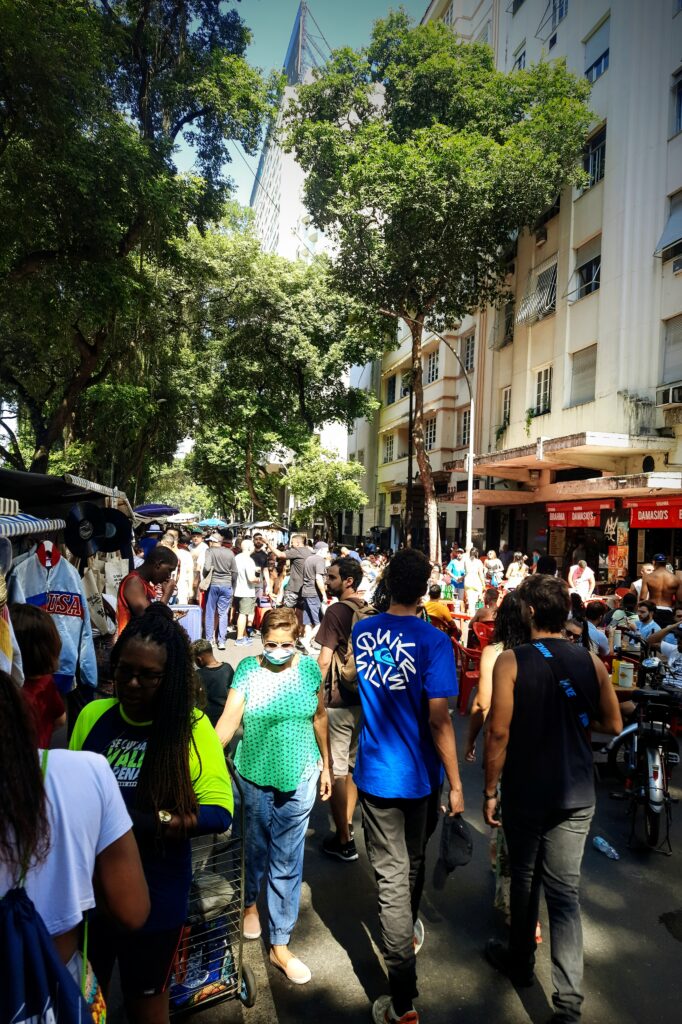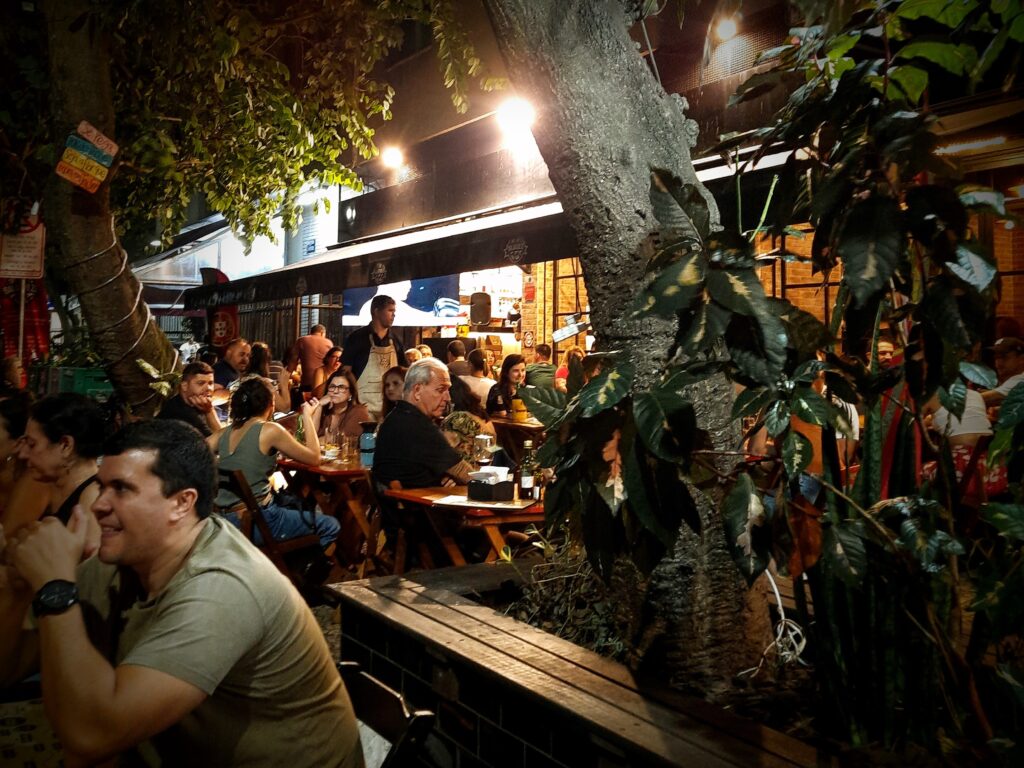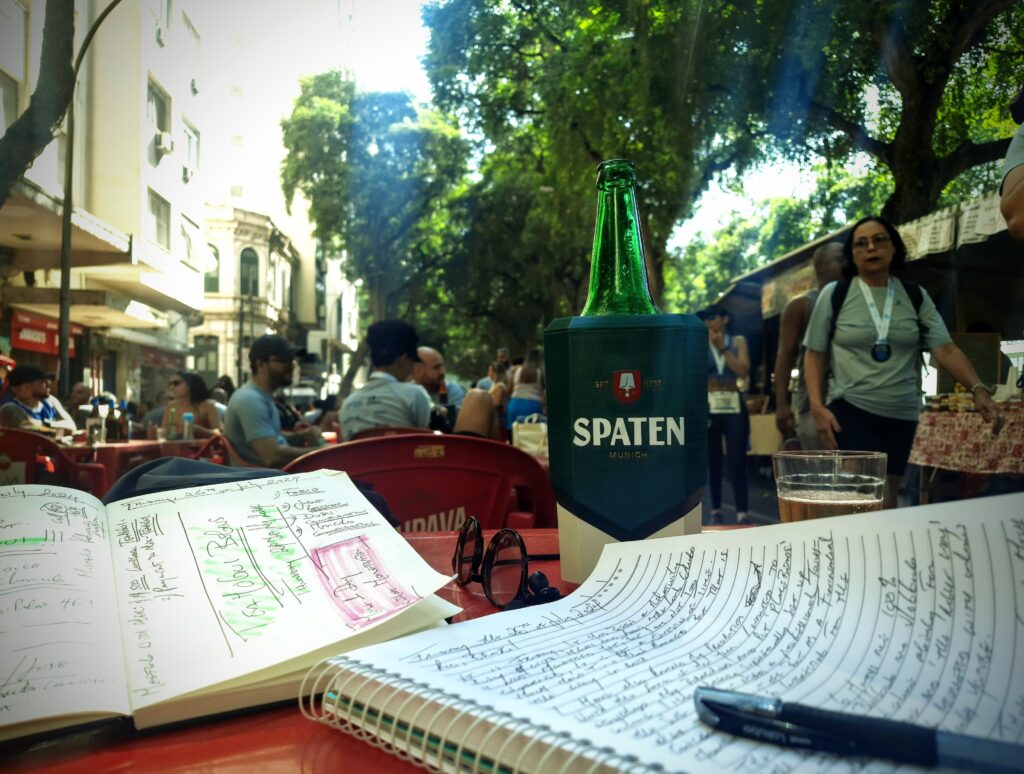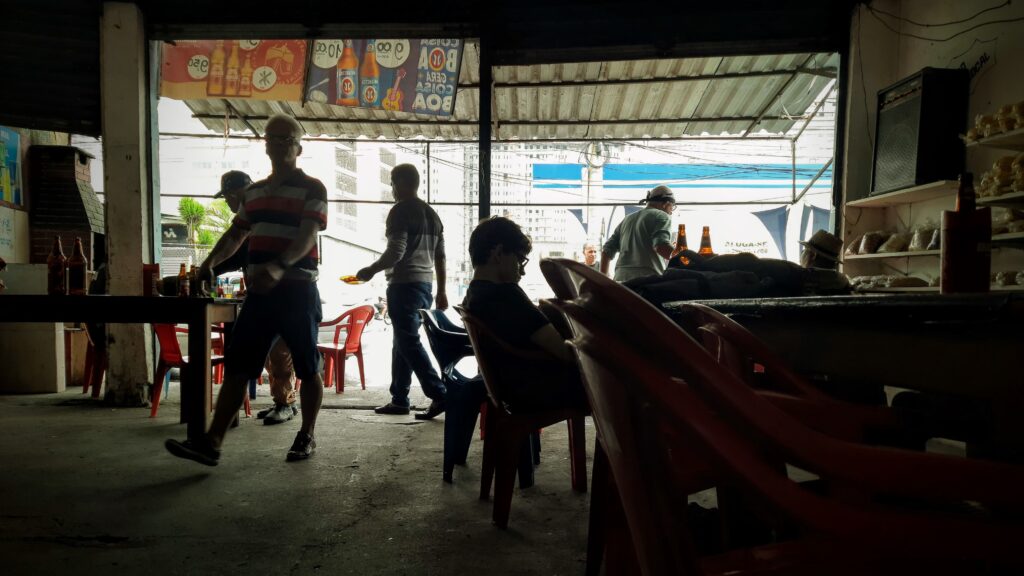Copacabana, Rio de Janeiro: 25 oC, hottish, sunny and slightly overcast.
On the 7th of October, Hamas terrorists entered Israel’s territory and mercilessly murdered innocent men, women and children. At that moment, the first reports had a death toll in the hundreds. Now, a little more than 10 days later, it is above 1000.
The Israeli-Palestinian conflict has persisted for thousands of years, and it seems unlikely that it will be resolved anytime soon.
What troubles me is the approach taken by modern journalists. They often overlook the suffering of families and individuals, focusing instead on what they find ideologically interesting or convenient to publish.
It’s critical to recognise that no matter the circumstances, the brutal acts of terrorism that lead to the murder of innocent people—especially women and children—are unacceptable. There can be no justification for such atrocities. It is disheartening that journalists and political groups seek to rationalise these actions, as such reasoning is neither logical nor acceptable.
If it were their own families—if their loved ones were victims of a terrorist attack, suffering from slaughter, rape, or torture—the situation would be profoundly different.
We live in a world where terrorist attacks against innocent people have become tragically commonplace, making the needless loss of life an alarming part of our everyday existence. In modern society, whether the casualties are one, two, a hundred, or a thousand, we can only strive to avoid being in the wrong place at the wrong time, lest we become just another statistic.
Everything in life seems to escalate or increase prices, inflation, sales, sales, company numbers, etc. So it is only natural an attack of 10/20 is nothing, and maybe hundreds, too, is not enough. Maybe there needs to be thousands or hundreds of thousands of innocent people to be killed for the world to pay attention to these cowards and their actions.
A terrorist attack is similar to a child throwing a tantrum to get attention. Just as children may scream, shout, and throw themselves on the floor when they don’t know how to communicate their needs effectively, terrorists resort to violence to express their frustrations. Lacking the maturity to resolve their issues constructively, they resort to behaviours reminiscent of ancient times—actions that history has shown to be ineffective and harmful.
These attacks result in the deaths of innocent people, ultimately achieving nothing but chaos, similar to a child’s fit aimed at gaining attention from their parents in front of an audience.
The Irish Republican Army (IRA) of Ireland ultimately decided to abandon terrorist attacks against England and British troops after centuries of conflict that resulted in the deaths of thousands of innocent people. One significant event was the series of pub bombings in Birmingham in 1974, which occurred during the Christmas period and involved several terrorist attacks in English pubs.
An IRA terrorist would go to a popular pub full of people during Christmas Time or have a drink at the bar and, after a couple of minutes, would leave the pub with a bag left under the table with a bomb in it inside the pub. Twenty-one people died from the two Christmas pub bombings in Birmingham, with many families being destroyed because of it.
After 20 or 30 years and various other terrorist atrocities, the IRA eventually gave up on committing terrorist attacks and the use of weapons to defend their cause. Violence in such situations does not resolve problems; two wrongs do not make a right.
My heart goes out to the families of innocent people who were needlessly hurt or killed because of the attacks, as well as to those affected by any other terrorist acts that resulted in the loss of innocent lives around the world throughout history.
Humans tend to seek attention; they want others to notice them and often to feel sympathy for their situation. This desire to be seen as a victim can lead them to believe that they have the right to harm others. This is one of the fundamental traits that can help identify a psychopath: someone who feels victimised and, as a result, thinks they are justified in taking revenge and causing pain.
This perspective is one of the reasons I struggle to accept the concept of victimhood. Regardless of the pain you may be experiencing, it’s essential to take responsibility for it and move forward with your life. Life can be brutal and challenging, and the more you allow yourself to dwell in victimhood, the harder it may become for you.
Ultimately, nobody is drawn to someone who constantly portrays themselves as victims; such behaviour can be perceived as pathetic.
I also lament the current state of modern journalism, which I believe has become one of the biggest failures of our time. In the past, journalism aimed to present information unbiasedly, but that ideal seems to have eroded. Nowadays, it often comes down to the journalist’s agenda, which is frequently obscured.
Ultimately, the underlying reason usually ties back to economic interests. Journalists tend to represent and defend a particular ideology, cause, or perspective — and at the end of the day, it often boils down to money. How disappointing is that?
The problem is that the power of the pen can be as strong as that of a gun, if not more powerful. Therefore, we should hold high responsibility and ethics when writing about such complex and dramatic situations involving delegates.
In some ways, the world has lost its way. My grandfather fought in the First World War, and my father served in the Second World War. These men had evident and unbreakable principles regarding what is right and wrong.
I often wonder what my grandfather and father would think about the current state of the world, the way people are thinking, and how things are being reported, shown, demonstrated, and represented.
A typical day involving classes and work, a concerning day about the world and our future.
In bed by 10.00 pm.
Thank you.
Thanks for reading this blog post. Please explore my other posts and share your thoughts in the comments section.
Richard









